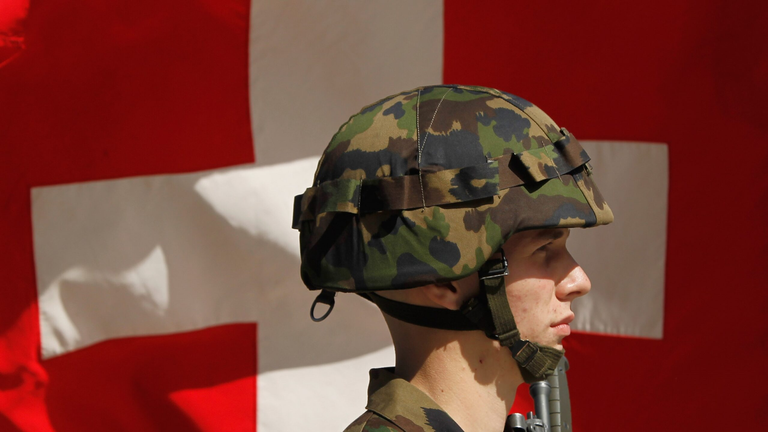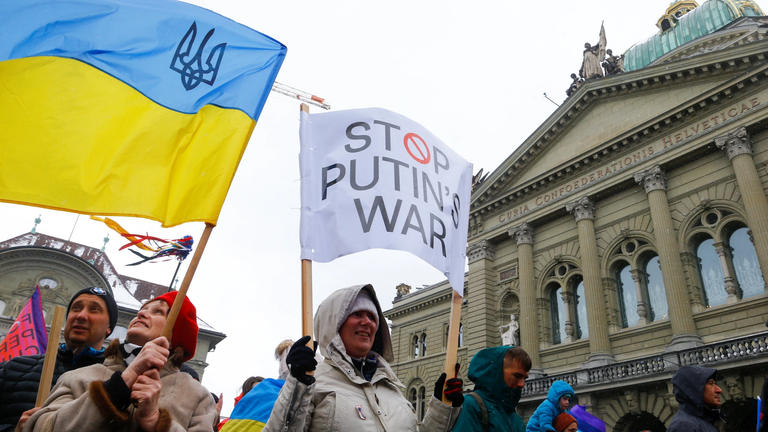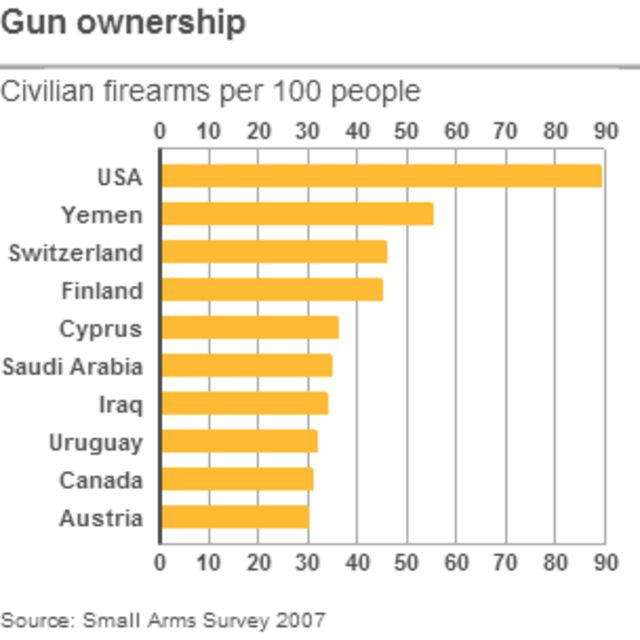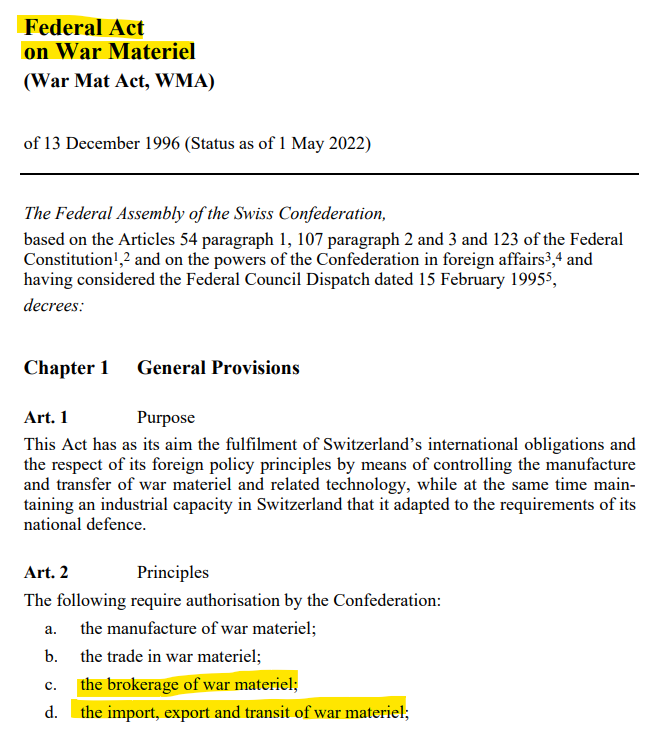
Putin's invasion of Ukraine has united Europe's security architecture. Nato has expanded. Defense budgets are going up. And even the EU, once considered a bureaucratic lump, has started taking its independent security policy more seriously. Even historically neutral countries have come around. Finland broke with its long standing tradition of neutrality by applying to NATO last year and even Switzerland, arguably the more neutral country in the world, decided to join in with the EU's sanctions and send humanitarian aid to Ukraine. However, in the last couple of weeks, Switzerland has irritated some of their European partners by refusing to allow the re-export of Swiss weapons systems, including ammunition for gepard anti-aircraft guns and leopard tanks. Today's article we're going to have a look at Switzerland's neutrality policy, why it forbade them from sending arms to Ukraine and whether it might change in the future.
So before we get into the recent debacle over export licenses; context. Since the Congress of Vienna in 1815, when Switzerland signed a declaration affirming its perpetual neutrality, Switzerland has been a staunchly neutral country. It refused to take sides in either World war. Refused to join NATO during or after the Cold War and is still yet to join the EU. To give you a sense of how seriously Switzerland takes this neutrality, consider the fact that Switzerland only reluctantly joined the UN in 2002 over a decade after North Korea. Nonetheless, while it might not be in all the relevant clubs or alliances, Switzerland is still in many ways, a Western nation. After all, it's a liberal democracy that shares a border with Europe's three largest economies and has deep links with the rest of the EU. Like other Western countries, the vast majority of Swiss people support and sympathize with Ukraine. Thousands of Swiss households have offered their homes to Ukrainian refugees for whom the Swiss government has offered visa free collective protection. When Putin invaded, the Swiss government came under immense public pressure to act in harmony with the rest of Europe and, well, it sort of did.

While Switzerland obviously hasn't been as active in its support of Ukraine as its NATO counterparts, it joined other Western countries in sanctioning Russia, including freezing many Russian bank accounts and banning five oligarchs close to Vladimir Putin from entering the country. Flights from Russia are banned with limited exemptions for diplomats, and Switzerland has even sent over 1 billion francs worth of humanitarian aid to Ukraine, where the Swiss humanitarian aid unit have been deployed. These measures were a big deal. This was the first time Switzerland had imposed sanctions of this sort in its modern history, including World War Two, when Switzerland continued to trade with Nazi Germany. Nonetheless, despite their unprecedented nature, these measures were remarkably popular. Polling from last year found that about two thirds of the Swiss population supported sanctions on Russia and three quarters were in favor of humanitarian assistance.The Swiss government claimed that these measures were consistent with Switzerland perpetual neutrality because they weren't intrinsically pro-Ukrainian or anti-Russian, but rather a neutral defense of international law.
In a speech at Davos last year, for example, the Swiss president argued that Switzerland had to take a clear stance on the war in Ukraine because democracy must be stronger than tyranny, international law, stronger than submission, law, stronger than power and self-determination, stronger than oppression. At the time, it felt a bit like Switzerland was on the same track as Finland, another European country with a long history of neutrality that's been troubled by Putin's invasion of Ukraine. However, while Finland decided to ditch its neutrality in the end by applying to join NATO and sending arms to Ukraine, Switzerland has gone in a different direction, reasserting its neutrality by refusing to allow the re-export of Swiss made weapons systems or Swiss owned tanks. For context, unlike most other neutral countries, Switzerland is actually a highly militarized state, at least by European standards. It has mandatory conscription, a uniquely high gun ownership rate, and a functioning army. Switzerland has come under pressure to join in with its European neighbors and send some of its arms to Ukraine, including rapier air defense systems. Switzerland bought 60 of these systems from the UK in the 1980s and is currently in the process of dismantling them because they're too old.

But as Ukraine really needs air defense systems, Kyiv and its allies have suggested, instead of throwing them out, Switzerland could send the systems to Ukraine. Switzerland also refused to sell its stock of retired leopard tanks back to Germany to send on to Ukraine and refused the re-export of ammunition for the gepard anti-aircraft tanks that Germany is sending to Ukraine, which is made in Switzerland by Rheinmetall. In total, Switzerland has now refused re-export or sale requests from at least five European countries, including Germany, Poland, Denmark, Spain and the Czech Republic. In justifying their decision, the Swiss government have pointed to a 2006 decision by the Federal Council prohibiting decommissioned foreign made systems from being sold to non origin countries and the Swiss War Materiel Act, which prohibits the export of Swiss made systems to countries involved in armed conflict. But while this might be legally correct, the sight of Switzerland literally bidding systems that could be used in Ukraine has upset Kyiv, Washington and much of Europe. Robert Harbach, for example, told Der Zeit. Last month that he couldn't understand why Switzerland wasn't providing Gepard ammunition. And the French ambassador to Switzerland claimed that Switzerland's hesitation was putting Europe's security at risk. Anonymously. Western officials have even accused Switzerland of using its neutrality as a cover for its commercial interests with Russia.

So can Switzerland's position hold, or will Byrd end up allowing the re-export of arms to Ukraine? Well, some Swiss politicians, including members of the left leaning Social Democrats, the Green liberals and the centre right Free Democrat Party have come out in favour of Re-exporting, and polling suggests a slight majority of Swiss citizens agree. Many Swiss people will also be worried by the impact that this is all having on Switzerland's domestic defence industry because they won't allow its re-export. The producers of Gepard Ammunition Rheinmetall have decided to move their manufacturing out of Switzerland into Germany. If this trend continues, then Switzerland won't have a domestic defence industry which could threaten the viability of what the Swiss describe as armed neutrality, which basically means neutrality guaranteed by an effective military deterrent. However, a U-turn doesn't look likely in the immediate future. For starters, the Swiss Parliament has already rejected an initiative that would allow countries that shared Switzerland's democratic values to re-export Swiss made armaments. Pro-ukraine lawmakers have since scrabbled together six counter proposals, but they're unlikely to succeed. And there's even talk of a referendum to codify a stricter interpretation of neutrality in Switzerland's constitution. While Switzerland's policy of neutrality has proven malleable in the past, and the Swiss public might be enthusiastic about stepping up to support Ukraine, Switzerland's political class, especially its more conservative elements, don't look ready to see Swiss made weapons on the battlefield if you do want to track.
Congratulations @scientify! You have completed the following achievement on the Hive blockchain And have been rewarded with New badge(s)
Your next target is to reach 2250 upvotes.
You can view your badges on your board and compare yourself to others in the Ranking
If you no longer want to receive notifications, reply to this comment with the word
STOPCheck out our last posts:
Support the HiveBuzz project. Vote for our proposal!